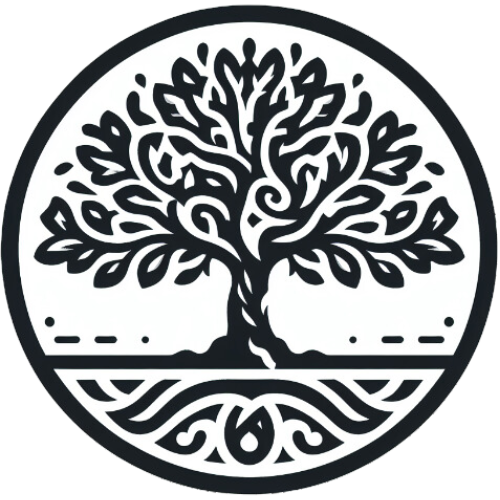Sleep is essential for overall health and well-being, impacting everything from cognitive function to physical health. In this guide, we’ll explore the many facets of sleep, including its stages, environmental factors, and tools like the Oura Ring, which I have been using since 2019.
The Importance of Sleep
Sleep plays a critical role in restoring and repairing our bodies. During sleep, especially deep sleep, the body repairs tissues, builds muscle, and strengthens the immune system. The glymphatic system, active during sleep, clears waste products from the brain, essential for brain health and cognitive function.
Understanding Sleep Stages
Sleep consists of several stages, including REM (Rapid Eye Movement) and deep sleep. REM sleep is essential for cognitive functions like memory consolidation and emotional regulation, while deep sleep is crucial for physical restoration and immune function. Adults should aim for 7-9 hours of sleep per night to reap these benefits.
Heart Rate Variability (HRV) and Sleep
HRV measures the variation in time between each heartbeat, reflecting the balance between the sympathetic and parasympathetic nervous systems. A higher HRV generally indicates better cardiovascular fitness and resilience to stress. Monitoring HRV during sleep with tools like the Oura Ring provides valuable insights into sleep quality and overall health.
The Role of Hormones in Sleep
Hormones play a critical role in sleep regulation:
- Melatonin: Produced by the pineal gland, melatonin regulates the sleep-wake cycle. Its production is influenced by light exposure, with levels rising in the evening to promote sleep.
- Growth Hormone: Released during deep sleep, growth hormone is essential for growth, cell repair, and metabolism.
- Cortisol: Produced by the adrenal glands, cortisol levels peak in the morning to promote wakefulness and gradually decline throughout the day.
Neuroendocrine Systems and Sleep
The hypothalamus and pituitary gland direct several neuroendocrine functions that impact sleep:
- HPA Axis (Hypothalamic-Pituitary-Adrenal): Manages stress responses, affecting sleep quality.
- HPG Axis (Hypothalamic-Pituitary-Gonadal): Regulates reproductive functions, influenced by sleep patterns.
- HPT Axis (Hypothalamic-Pituitary-Thyroid): Controls metabolism, which is closely linked to sleep.
- Hypothalamic-Neurohypophyseal System: Oversees water balance and blood pressure, both of which can impact sleep.
Creating the Perfect Sleep Environment
- Temperature: The ideal room temperature for sleep is between 16-20°C (60-68°F). A cooler room helps lower your core body temperature, facilitating better sleep.
- Light: Exposure to light, especially blue light from screens, can interfere with melatonin production. Use blackout curtains and consider wearing an eye mask to block out ambient light.
- Device Light: Limit screen time at least an hour before bed. Use blue light filters if necessary.
- Clean Air: Ensure good air quality by using air purifiers or keeping windows open for fresh air.
- Noise: Use white noise machines or earplugs to minimize disruptions from environmental noises.
- Bedding: Invest in a comfortable mattress and pillows that support your sleeping position.
Sleep Aids: Magnesium Glycinate and Chamomile Tea
Magnesium Glycinate is a highly absorbable form of magnesium that can help improve sleep quality by relaxing muscles and reducing stress.
Chamomile Tea is known for its calming effects, thanks to the antioxidant apigenin, which binds to receptors in the brain to promote sleepiness. Other beneficial teas include valerian root, lavender, and passionflower.
The Impact of Alcohol and Caffeine on Sleep
Alcohol may help you fall asleep faster, but it disrupts sleep by reducing REM sleep, leading to poorer sleep quality and increased awakenings during the night. Additionally, alcohol can exacerbate sleep disorders like sleep apnea.
Caffeine is a powerful stimulant that can significantly impact sleep quality. Consuming caffeine even six hours before bedtime can disrupt sleep by reducing total sleep time and the quality of deep sleep. It’s best to avoid caffeine in the afternoon and evening to ensure better sleep.
The Power of the Oura Ring
I’ve been using the Oura Ring since 2019, and I can’t recommend it enough. This smart ring tracks your sleep stages, HRV, body temperature, and more, offering detailed insights into your sleep quality. It helps you understand how your lifestyle choices affect your sleep and overall health.
Establishing a Pre-Sleep Routine
Creating a pre-sleep routine signals your body that it’s time to wind down. Here are some steps to consider:
- Wind Down: Engage in calming activities like reading, meditating, or taking a warm bath.
- Consistent Schedule: Go to bed and wake up at the same time every day, even on weekends.
- Mindfulness and Relaxation Techniques: Practices like deep breathing, progressive muscle relaxation, or mindfulness meditation can help reduce stress and prepare your body for sleep.
Recommended Books on Sleep
To further enhance your understanding of sleep, I recommend the following bestsellers:
- Why We Sleep: Unlocking the Power of Sleep and Dreams by Matthew Walker
- The Sleep Revolution: Transforming Your Life, One Night at a Time by Arianna Huffington
- Sleep Smarter: 21 Essential Strategies to Sleep Your Way to a Better Body, Better Health, and Bigger Success by Shawn Stevenson
Conclusion
Optimizing your sleep is one of the best investments you can make for your health and well-being. By understanding the importance of sleep, creating a conducive sleep environment, and utilizing tools like the Oura Ring, you can significantly improve your sleep quality and, consequently, your quality of life.
Note: This article is not a substitute for professional medical advice. Please consult with your healthcare provider for personalized recommendations.



Leave a Reply